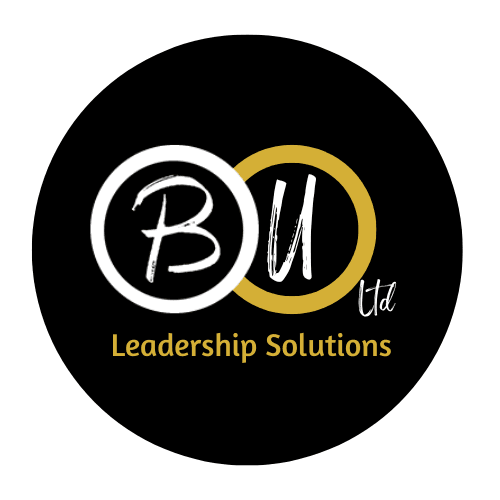If you want anything significant to happen in your life, your team, or your organisation; you need to have expectations. Not just random expectations but intentional expectations that you form consciously and purposefully. As we have discussed in previous posts, expectations are very important in leadership. Their profound impact is something leaders cannot afford to underestimate, largely because of their fundamental role in driving high performance and success.
Imagine the remarkable possibilities of consciously creating expectations that fuel your team’s enthusiasm, spark innovation, and pave the way for amazing achievements…
Those remarkable possibilities can be realised if you form intentional expectations. In this blog post, we’ll delve into how intentional expectations are created, exploring the different aspects involved, and identifying the key elements at play.
Let’s get to work!
The Psychology Behind Expectations
Expectations are not basic predictions or anticipations, no. They are the result of a number of influences that come together to form our desires and shape our beliefs about what we want to happen in the near or distant future.
Think of an expectation as though it were an onion.
An onion is a simple bulb when you look at it. However, when you cut the onion with a knife, you see the many layers that come together to form the whole bulb. Expectations are like that too, they exist as a result of a combination of layers. These layers are usually a combination of psychological, emotional, and cognitive factors; influenced by past experiences, upbringing, cultural and societal norms, the media, and our associations.
We talked about those influencing factors in the first blog post of the #ExpectationSeries: “Understanding The Basics: What Are Expectations.” If you haven’t read it yet, go to our blog page and click/tap on the post with that heading.
How Expectations Work
Expectations do not exist in a vacuum and they are not mere whims either. They require relevant information or knowledge to exist. In other words, there is always a basis for expectations; conscious and subconscious ones.
When I talk about expectations, I’m basically referring to the conception of a desire–or a longing–to BE, DO, or ACHIEVE/GET something. ‘Something’ that’s based on the information or knowledge we have about things, situations, or people. For intentional expectations, we conceive these desires consciously and with a purpose.
Intentional expectations are the reasons we have visions, strategies, and goals. Here’s how it works in simple terms: a desire is conceived in your mind, you become aware of it and you start thinking about it. Your deliberate thoughts about this desire then prepare your faculties to explore the benefits of this desire and then develop an outcome. This leads to the formation of a mental image of what that outcome looks like for you. This mental image can then be developed into a vision that you can articulate and run with. Based on that vision, you form an overall strategy and then break that down to form goals; but it all starts with intentional expectations.
In reality, we are always forming expectations about what we want to have and about what we want to happen to us; we do this consciously and subconsciously. If we want to harness the power of expectations and leverage them for success, we’ll need to pay greater attention to forming our expectations intentionally.
Common Pitfalls
Forming intentional expectations that produce results is not foolproof. As we set out to form meaningful expectations, we might encounter pitfalls or potential traps that can keep us from forming good expectations, following through on set expectations, or achieving our desired outcomes. Some of the common pitfalls include:
- Lack of Self-Reflection: not taking time to reflect on what matters to you (values, aspirations, passion), what will serve you well, and what will bring fulfillment. This can lead to the formation of expectations that are neither meaningful nor motivating
- Fear: fear of failure, fear of rejection, or fear of not being able to manage new achievements can cause you to place more weight on negative information. Thus, causing you to form low expectations or not follow through on the good expectations you form
- Invalid or Unsound Inference: creating expectations to suit external validation or social influence, thereby ignoring valid evidence
- Comparison: aligning your expectations with what someone else has, or with the general consensus, instead of with objective reality
- Lack of Realism: not grounding your abilities, resources, the risks involved, or the change that’ll happen, in reality
Creating Intentional Expectations
As I said before, we form expectations always, both consciously and subconsciously. The expectations we form subconsciously are so called because we do not deliberately direct our attention to them.
Conscious expectations on the other hand are so called because we deliberately direct our attention to them, leading to the significant role they play in our performance and success. Conscious expectations can also be referred to as intentional expectations, and as such, they require our focus and active participation.
There are certain elements at play that affect how we form intentional expectations. Knowing them will help you use them to your advantage, to form expectations that are both meaningful and fulfilling. Outlined below are some of those elements:
- Awareness: how much or how little attention you pay to your thoughts and your perceptions
- Evidence: the information, facts, data, or proof that you base your expectations on
- Perceived Value: how much or how little you value the benefits that your expectations will bring you
- Emotional Response: how you feel when you think about your expectations or when you think about how your life will change when you achieve them
Forming expectations consciously, with a purpose, is vital for your continuous progress and your effectiveness as a leader. By understanding the psychology behind forming expectations, knowing how expectations work, being aware of common pitfalls, and using the elements of creating expectations to your advantage, you can set the stage for success.
Know this: your leadership journey will be strengthened by the intentional expectations you create and run with. It’s time to harness that strength and lead your team and/or organisation to greatness.
Be intentional!




